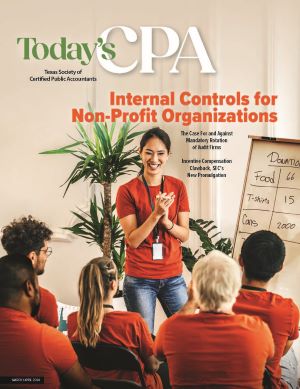March 05, 2024
The Wild West: The Lasso is Out for Crypto
By Don Carpenter, MSAcc/CPA
The recent financial collapse of FTX Trading Ltd. and the ensuing criminal fraud charges against its founder have brought into focus the inherent risks of cryptocurrency and the inability of the financial system to keep up with its evolution. The scandal has put several members of Congress from both parties whose campaigns accepted sizable contributions from FTX in awkward positions, as well as regulators who were caught unprepared for the fallout.
The crypto market has grown to almost $2 billion annually with approximately 300 million owners in 2021 from its origins when Bitcoin debuted in 2011 at $0.30 and is projected to surpass $32 billion by 2027. But as the market has grown, so has its complexity and the structures within which investments are made.
Regulators determined that as “payment tokens,” Bitcoin is not a security subject to regulations that govern other securities such as stocks or bonds. This conclusion was confirmed with the introduction of Ether in 2018. But all crypto assets are not created equal and this has raised issues regarding which assets should be regulated and by whom.
Initially, cryptocurrency was created as an alternative to fiat currency such as the U.S dollar, euro or yen, which are not backed by a commodity such as gold or silver. However, cryptocurrency also lacks the support of a government or alternative institution but rather relies solely on blockchain technology.
The earliest versions were produced as alternatives to traditional currencies being “payment tokens” for goods and services and their value fluctuated against these currencies. More recent crypto assets are categorized as “security tokens” that serve as surrogates for physical assets or earnings streams and as such are entitled to dividends or interest payments similar to stocks or bonds. “Utility tokens” represent claims on goods or services that will be produced by the underlying business or project.
These newer generations of crypto assets are issued in an Initial Coin Offering (ICO), which is the equivalent of an IPO. And it is these tokens that are at the center of the regulatory debate.
The crypto industry has proposed that the market should be regulated by the Commodity Futures Trading Commission (CFTC), which regulates commodity futures and derivatives trading. They argue that cryptocurrencies are commodities whose value changes independent of the underlying venture. However, the SEC has gone on record stating that it considers many of these assets to be securities funding ventures with the expectation of a share of profits. It buttressed its position in 2022 by suing nine crypto assets for insider trading under current securities law. More recently, it sued Genesis Global Capital and Gemini Trust with securities violations for not registering their ICOs.
In determining whether a crypto asset is a security and thus under its authority, the SEC relies on the four-prong test emanating from a 1946 Supreme Court case known as the Howey test. The case involved the Howey Company, which sold sections of citrus groves to investors then leased them back. The company sold the produce and the investors shared in the profits. The investors were not knowledgeable with regard to citrus farming but relied on Howey to run the business profitably. The Court decision found that the leasebacks qualified as investment contracts under four criteria:
- An investment of money;
- In a common enterprise;
- With an intent to generate profits;
- While relying on the expertise or effort of others.
In the Howey case, the investors were not involved in the management of the business but relied solely on the investment of funds for their share of the profits. Generally, most crypto assets will satisfy the first two tests of an investment of money and a common enterprise. But what distinguishes “security tokens” assets from “payment tokens” is the expectation of profits generated by the expertise of others.
The SEC has pointed to factors such as maintenance of the network or managerial efforts by the project founders as meeting the last two criteria. Also, the removal of tokens from circulation to support value, known as “token burning,” is another example of profit generation relying on the efforts of others. Early cryptocurrencies like Bitcoin do not qualify because they function solely as mediums of exchange and have never sought funding for network development or maintenance. The fact that investors may buy Bitcoin for appreciation is similar to buying euros or yen with an expectation of its appreciation against other currencies.
If the SEC concludes definitely that a crypto asset is a security, it controls whether the asset can be sold to U.S. investors. As a security, the enterprise marketing the asset would be subject to disclosures such as an offering prospectus and regular financial reporting that are required for any security.
A similar approach has been taken in other jurisdictions. The European Union has adopted rules that are yet to become effective that govern tokens whose value is determined with reference to another asset. And the UK regulates crypto assets that have a right to repayment or a share of profits. Neither jurisdiction regulates “payment tokens” such as Bitcoin.
The current environment of “caveat emptor” may soon be coming to an end for many crypto investments. It remains to be seen how many can weather the increased scrutiny and reporting requirements that other securities have existed under for years.
About the Author: Don Carpenter, MSAcc/CPA, is clinical professor of accounting at Baylor University. Contact him at Don_Carpenter@baylor.edu.
























